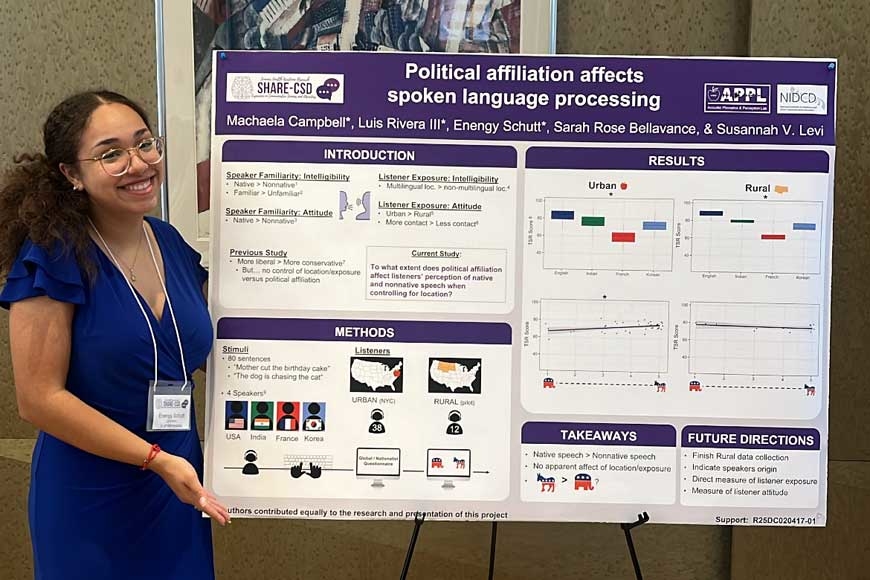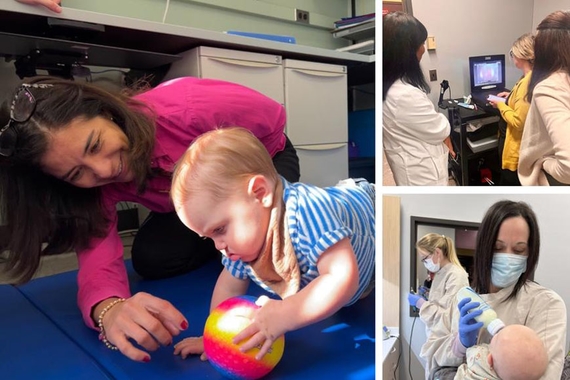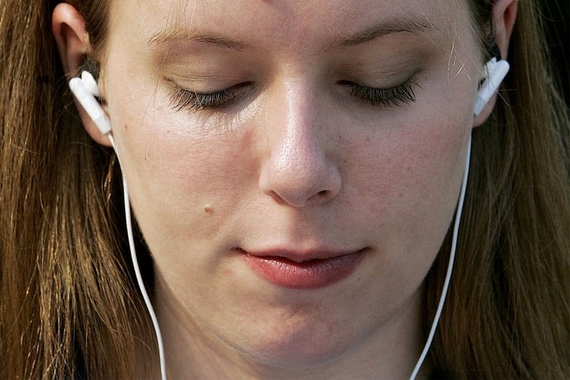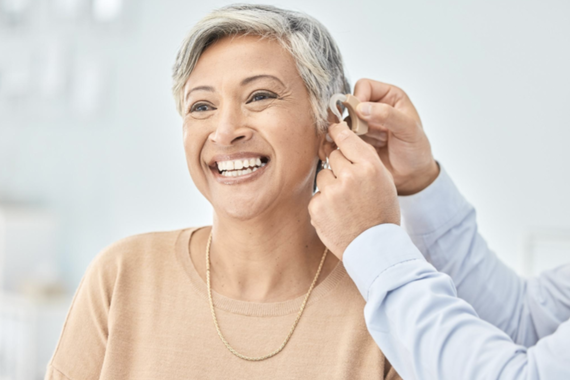Enengy Schutt's Summer Research Project at NYU on Speech Perception
Undergraduate Enengy Schutt traveled to New York University (NYU) this past summer to participate in their six-week Summer Health Academic Research Experience in Communication Sciences and Disorders (SHARE-CSD). She worked on a research study of how well people could understand people speaking English with a foreign accent compared to people speaking Standard American English.
The program trains undergraduates from backgrounds typically underrepresented in STEM and health fields in research skills along with skills to apply for and succeed in graduate school.
What do you call your project and how would you summarize it? How does it connect to your broader interests?
The lab I worked in, Dr. Susannah Levi's APPL Lab (Acoustic Phonetics and Perception), conducted a speech perception study. We researched how well different groups of people understood the English of people with three different foreign accents compared to speakers of Standard American English. The two groups we compared were people from urban areas and people from rural areas, and we also compared people's scores to their political affiliation. We created a symposium poster titled "Political affiliation affects spoken language processing.”
Our data showed that people from urban areas did better overall than people from rural areas at understanding foreign-accented English. We also found that, within the urban group, people with more right-leaning political views had more difficulty with understanding foreign-accented speech than left-leaning participants did. These findings were very interesting to me and exposed me to a dimension of speech perception that I had not previously thought about.
I am now very interested in investigating the differences in accuracy of understanding for accents of different regions of the world and considering the implications of these findings on the lived experience of second-language English speakers.
What did your research look like? What methods did you use?
Our research was conducted using a virtual survey and intelligibility task. We needed to make our study virtual because it would not have been possible to find enough participants for our rural group in the middle of Manhattan, where we were based. To recruit participants, we used a database and cross-referenced people's ZIP codes and previous addresses to assign them to one of our two groups.
To create our experiment, we used a study design website called Gorilla. After creating our virtual experiment, we collected the data and analyzed it using both R and Xcel. To contextualize our findings, we also spent lots of time doing literature reviews of published work related to our study. In hindsight, I would have liked to spend more time doing literature review before starting our experiment so that I could have formulated an informed hypothesis. The methods we used allowed me to apply skills I had learned in classes, such as navigating and clipping audio in Praat and writing code in R, and I also learned new skills and resources available to me.
How did you learn about the NYU program?
Dr. Natalie Covington, whom I had been in class with and worked as a research assistant for, told me about the program. With her encouragement and letter of recommendation, I applied and was selected as one of 12 students out of 300 applicants. I am so thankful to her for sharing this opportunity with me and for helping me get there!
NYU runs multiple ‘SHARE’ programs, and I encourage everyone to look into them as they are made to introduce people to different fields as well as introduce those already in those fields to valuable resources, networking, and experience.
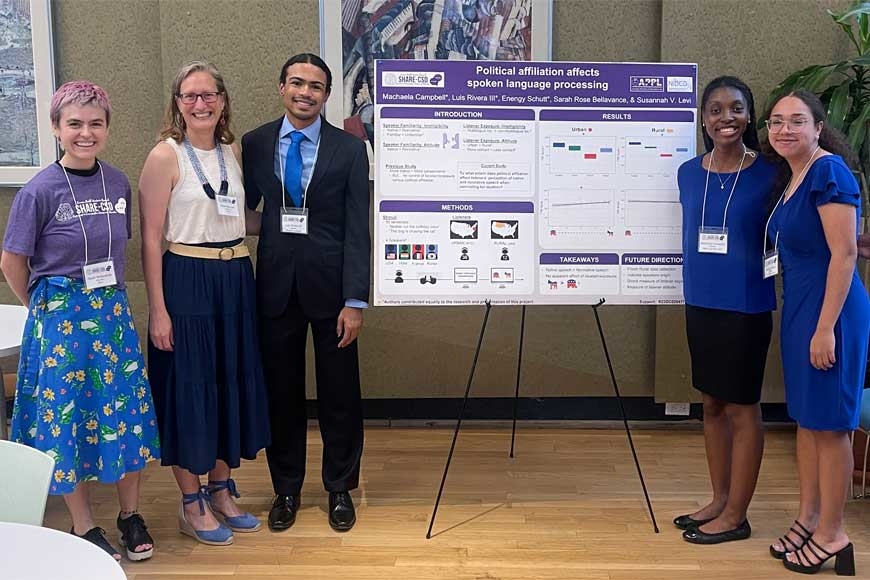
Were there opportunities for you to engage with professionals, researchers, or other students in the field? What were they?
The program was primarily run by two professors in the communication sciences and disorders department, Drs. Susannah Levi and Sudha Arunachalam. Along with two other professors in the department, Drs. Eric Jackson and Adam Buchwald, four labs ran at once with three students working in each on a project conceptualized especially for the program. All of these professors presented their research and interests to us and had office hours for us to learn more and ask questions, as did other department faculty.
We also went on a few field trips to different labs around the city to meet researchers who worked outside of the university setting. Many of the students in the program were SLHS majors so we got to meet one another and compare our experiences, and we spent a considerable amount of time with the department PhD students as well.
What was your biggest takeaway from this project?
My biggest takeaway from this project has been that unconscious biases are held by most people to some degree or another. Differences in people's ability to understand different foreign-accented speakers have been observed consistently by many researchers and methodologies, and not just in the US. It is important to tackle the issue of why these differences are observed, and how they disproportionately impact people with immigrant backgrounds. Research on these aspects of the problem, as well as more evidence about what aspects and regions of accents are differentially understood, is needed in our field.
From your perspective, how can programs like the one at NYU contribute to bringing more diversity to the field of communication disorders?
I have never felt more comfortable in an academic environment than I did in this program. No matter the class size, topic, or time of day, I have always been a more quiet student in classroom settings. Being in a space where I felt that I was a part of a community, where the faces sitting at my table looked like mine, made me act the way I do with friends and family (very chatty).
It is incredibly important for the fields of audiology, speech-pathology, and communication disorders to diversify because everyone deserves to feel represented and supported in their academic and professional lives. This program focused a lot on the importance of students like us, who are entering the field with an understanding of why diversity is important and bringing it with us.
Many of the students in the program weren’t in SLHS majors, but we all had minority backgrounds. The program dedicated time to teach us about the wide range of topics this field covers and encouraged us to look into courses and programs in our field that aligned with our interests. The faculty themselves were also far more diverse than I had experienced previously, which definitely added to the sense of commitment to diversifying our field. It also put into perspective for us students the importance of becoming the next generation of role models in the field for students of color.
Did you receive any scholarships or other support for travel expenses or any other costs?
This internship was fully paid. The program funding paid for my travel to and from NYC, stay in their dorms, meal plan, transit pass for the subway, and on top of that, I was paid a stipend for my 40 hours of work in the lab every week. Had it not been for the all-expenses-paid nature of this internship I would not have been able to participate, and that is exactly why they have it set up like this.
What advice would you have for other students interested in doing a project like yours?
I wouldn't have found out about this program had it not been for the connections I made with faculty in the SLHS department here at the U of M. It is so rewarding to spend time getting to know your professors and introducing yourself to them. Not only does it open up opportunities for you as a student, but in a field as wide as SLHS, it can also open your eyes to new interests and subfields that you might not have thought of before.
There are many opportunities either through or advertised by the U of M to be a part of a research team or create your own research. Lots of these opportunities are shared via newsletters, on MyU, or fliers posted around campus. If research interests you, connect with professors whose research you find interesting and seek out opportunities that fit your needs!
NYU has multiple programs like the SHARE-CSD program (Summer Health Academic Research Experience in Communication Sciences and Disorders) for different majors, such as global public health. All of these programs are geared towards students with marginalized backgrounds, and they focus on making the internships equitable and worthwhile for the admitted students. Although they are very selective and get lots of applicants, there are other programs similar to this one at many different universities around the country.
Taking your time with your application, being smart about who you ask to be a recommender, and applying early are all practical tips that can improve your chances of acceptance to internship programs and job opportunities.
What's next for you?
The study I conducted with the APPL Lab this summer is being submitted to the Acoustical Society of America's annual convention next May, and I'm very excited to attend my first conference as a presenter and travel to Canada for the first time!
I am also working on another speech perception study run by Dr. Benjamin Munson and looking forward to continuing this work and analyzing results soon.
The SHARE-CSD program will also be flying me back to NYU next summer to attend the next cohort's research symposium, and I can't wait to reconnect with the faculty and students I met during the program and see what new research they conduct. Additionally, I am very excited to begin my journey as a McNair Scholar this spring and conduct research here at the U of M over the summer.
Outside of research, I'm looking forward to continuing my role as the president of the Association of Black Psychology Students and working towards growing our presence on campus.
